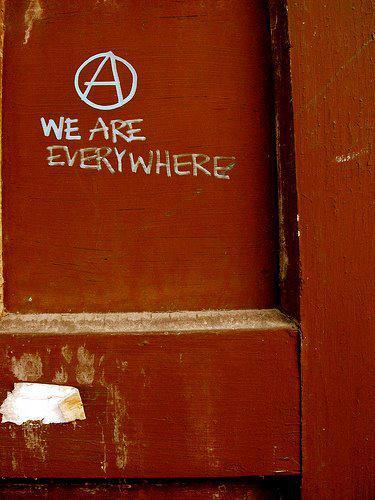This essay aims to discuss decisive points of technological significance in five realms of social change posited by Yale sociologist Immanuel Wallerstein in a 1996 essay, “The Global Possibilities, 1990-2025”. [1] This particular essay has been isolated for attention due to its ability to summarize specific trends of unprecedented change. In some earlier essays at Dissident Voice, I focused on how Immanuel Wallerstein’s ideas strongly indicate a path of liberation in various arenas that are in fact influenced by the nature of current technology. For example, advancements in cross-borders communication and transport are eroding the social cohesion of states. Also notable is how the anticipated ease of manufacturing as a result of various emerging technologies could foreseeably weaken the capitalist division of labor between the rich minority and poor majority of the world population. These are possibilities explored in this essay, posited among other targets for techno-progressive striving.
Immanuel Wallerstein’s world-systems approach posits that the world is a single interconnected social system, [2] and capitalism is dependent on a large division of labor between the oppressed majority who gain nothing from participation and the oppressive minority who gain everything. [3] Unlike other “orthodox” forms of Marxism, the Wallersteinian approach makes clear that the theories trying to define some form of oppressed proletariat inside each state are less useful than the theories defining a geographically distinct bloc of oppressed countries and groups like the Global South. [4] This puts the Wallersteinian approach in conflict with older Marxist ideas, and dramatically alters the implications of what changes might be entailed in the overthrow of current regimes.
The Twenty-First Century can be called a century of transition. If its outcome is a substantively rational world, the transition will allow us to depart from five hundred years of oppressive global economic structural necessities. [5] Transition is a term applicable to the period of the crisis that is marking the end of the current world system, as the end of the present world system is the end of capitalism. [6] Based on Wallerstein’s analysis, such an end entails the elimination of the unjust capitalist division of labor splitting the world into the profitable North and the exploited South.
Nothing is guaranteed without our agency, and our agency can be said to offer us two different sets of directions. On the reactionary side, the world system can be anticipated to survive and continue functioning in its oppressive manner, based upon an axial division of labor between the poor majority of humanity and the privileged few. Wallerstein projects this as a possibility if the present exploitative world economy showed an indication that it will be surviving post-2025. [7] On the progressive side, there is a chaotic period of structural global crisis, perhaps unfortunately “hell on earth”, [8] and such a phase entails the evolution of the world order into its next form through the demise of the capitalist division of labor. If evolution of historical systems demands an evolutionary pressure, and evolutionary pressure requires crisis, then such crisis is endurable in the long run even if the costs become terrible in the present. Those of us who are rational progressives, and understand the technological side of change, must help the chaotic transition to occur and actively channel the chaos in a productive direction towards the world’s socialist alternative.
Chaos is not something we would like to encourage normally, because it requires giving in to the ruthless winds of uncertainty, and rushing to build new structures without the oppressive historical origins of the old structures. But, in view of the many doors to the “uncertain alternative” [9] ahead, perhaps we must be prepared to give up our apparent moral and cultural foundations for the sake of a better alternative adhering to the character of modernity. We must submit to chaos, if we want to allow the oppressive order of the present to fall, so that we can build anew when the crisis has birthed the next civilization. No-one can predict the outcome of our civilization’s evolution, for the craftsman is crisis itself, but we can rest assured that a new order will emerge out of chaos. [10] Wallerstein drew attention to six vectors of the structural crisis of the current world system. [11] But, still relevant today, there were five specified arenas of social change [12] that can be used to suggest techno-progressive targets in the attempt to push aspects of the transition through.
Target 1: Delegitimize “Nations”
“Gemeinschaften”, or groups, represent an arena best expressed in the continued need to perpetuate some notion of citizenship in the world. The concept of citizenship has given rise to the prevailing fictive narrative for binding human “groups” and offering more rights to some than others. The concept has been identified with states, guaranteed by states and used by states to legitimize their sovereignty. For two centuries, each person in the world system has been a citizen of some country, and this normally means one country. The question is whether citizenship will remain dominant when it comes to group loyalty and affinity. Chaos arises in the assertion of new groups to replace the old Nineteenth Century idea of national identity as this falls apart. [13] For those of us who understand the transition at work, the choice that we are offered provides three routes. We can either regress to the status quo ante of citizenship to protect the group we have known, we can seek self-protection and aggrandizement of the group in the manner of ethno-nationalist narratives, or we can appeal to new group ideas as a way of promoting democratization and equality. [14] Knowing the third option to be the progressive target, we can say that the old idea of citizenship must be discarded and undermined, but we must also thwart the emergence of new identity narratives that do not accommodate the search for equality. In sum, “communities” or “identities” of various kinds, be they religious, ethnic, and so on, should be accepted as rhetorical, transitory vehicles for democratic and egalitarian purposes. However, in the long term, the identity narratives should be shed upon the stabilization of a more rational world order consisting of only one greater human community.
The greatest obstacle is the prevailing notion of citizenship, and so the delegitimization of nations and citizenship is a worthy target for techno-progressive action. This can be achieved by thwarting the divisions among nations. Language is a significant barrier. If technologies can be developed that allow for greater communication across borders, for example technologies that enhance what the Internet is already doing and allow language barriers to be eroded, such technologies will help to break the social cohesion of states. In turn, this will force people to re-examine their identities in a more rational way, so they may delegitimize and question the concepts of nation and citizen.
Target 2: Circumvent State Dominance
“Police order” or “stateness” has been “guaranteed by the states, who use force, reward and faith to enforce order”. [15] The richer minority states have always been best at this type of control, due to their greater available technology and other aspects of their power. [16] The world system’s axial division of labor has provided a stable global production process, due to the projection of a form of global police order from the rich countries out towards the poor countries. Stateness is oppressive in nature and ought to be eliminated, as it offers support to the prevailing structures of knowledge. [17]
Techno-progressives should embrace a dramatic and precipitous decline in stateness, [18] which they can seek out by empowering normal citizens against their governments to overcome the sustainability of various regimes based on brutal police order. If state power can be subverted by the common inhabitants of states, the world is taking a step towards eliminating a brutal and violent basis of power.
Target 3: Subvert Military Supremacy
“Military order” is an important pillar of the current international system. Wars are now mainly interventional, by the rich countries against poor countries, with oppressive purposes to sustain the axial division of labor. On the other hand, there could conceivably be retaliatory transnational wars by South against North. [19]
The aim of techno-progressives should be to subvert the military supremacy of the North and all hegemonic exercise of military power. This entails promoting the democratization of technological means of resistance, so that the South is more capable of resistance to the North’s wars of conquest and plunder. [20]
Target 4: Sustain Global Welfare
“Welfare” can include food and healthcare. [21] However, it is obvious that this arena can also be extended to include energy security. Ideologues of the present world system congratulate themselves on the triumphs of the technology derived from global production dependent on the axial division of labor, but the triumphs are unsustainable. Structural collapses, based on the issues already discussed in the previous three targets, will unfortunately eliminate this sole redeeming attribute of the world order. [22]
The techno-progressive emancipatory move would focus on somehow sustaining and keeping global welfare intact, even if this requires acts considered illegal according to intellectual property laws. Aspects of the world order that appear calculated to preserve the production process by keeping industrial secrets in the hands of the few are actually aimed at keeping the production process maximally profitable. As technology races forward in terms of medicine, energy and agriculture, it should be leaked, democratized and made available to the worst-off elements of the world population through techno-progressive campaigns.
Target 5: Reform Religious Institutions
“Stability of religious institutions” is the fifth arena specified by Immanuel Wallerstein, and we can note that there is said to be a religious revival. [23] In fact, in all ways, the various religious revivals are minor in comparison with the ultimately secular debates that have been handed down to religious institutions from the political sphere. This proves that religion is actually turning towards the progressive as a result of social commentary, accommodating such things as equality for women. [24]
An unfortunate direction would be to maintain the religious institutions as reactionary fortresses, preventing their negotiations with rational social issues of equality, on the grounds that such progressive narratives threaten to corrode the institution’s own foundations until it loses legitimacy. There is nothing inherently bad about religious institutions. As specified in the discussion of the first target, religious identity is more preferable for encouragement than national identity, because at least religious identity can be transnational. This allows it to be used as a cultural clothing to criticize some of the worst and most oppressive aspects of the world system. Religious symbolism and argument can be justified if it leads towards egalitarian ends, which it achieves more effectively than Nineteenth Century nation-state rhetoric.
Technology can help to meet the target of religious reform by changing minds and delegitimizing the nation, as specified in the discussion of the first target.
In sum, techno-progressives can approach the throes of transition to a new world system optimistically if they consider the kind of technological opportunities that exist and support their options. As I have argued in other essays, large amounts of the structural oppression in the world can be delegitimized and overpowered through a primarily technological form of progress and empowerment.
[1] Immanuel Wallerstein, “The Global Possibilities, 1990-2025”, p.226-243 in Thomas Hopkins and Immanuel Wallerstein, et al., The Age of Transition (Zed Books Ltd, London, 1996)
[2] Id., “The Rise and Future Demise of the Capitalist World System”, p. 71-105 in The Essential Wallerstein (The New York Press, New York, 2000), p. 71-74.
[3] Id., “Class Formation in the Capitalist World-Economy”, p. 315-323 in The Essential Wallerstein (The New York Press, New York, 2000), p. 316.
[4] Id., World-Systems Analysis: An introduction (Duke University Press, Durham, 2004), p. 28.
[5] Ibid. p. 23.
[6] Id., “Modernization: Requiescat in Pace”, p. 106-111 in The Essential Wallerstein (The New York Press, New York, 2000), p. 111.
[7] Id., “The Global Possibilities, 1990-2025”, p.226-243 in Thomas Hopkins and Immanuel Wallerstein, et al., The Age of Transition (Zed Books Ltd, London, 1996) p. 226.
[8] Id., Utopistics (The New Press, New York, 1998) p. 35.
[9] Id., “Social Science and the Quest for a Just Society”, p. 185-203 in The Essential Wallerstein (The New York Press, New York, 2000), p. 203.
[10] Id., “The Agonies of Liberalism: What Hope Progress?” p. 416-434 in The Essential Wallerstein (The New York Press, New York, 2000), p. 431.
[11] Thomas Hopkins and Immanuel Wallerstein, et al., The Age of Transition (Zed Books Ltd, London, 1996) p. 2.
[12] Ibid. p. 239.
[13] Ibid.
[14] Ibid. p. 240.
[15] Ibid.
[16] Ibid.
[17] Ibid. p. 241.
[18] Ibid.
[19] Ibid. p. 241-242.
[20] Ibid.
[21] Ibid. p. 242.
[22] Ibid.
[23] Ibid. p. 242-243.
[24] Ibid.





















